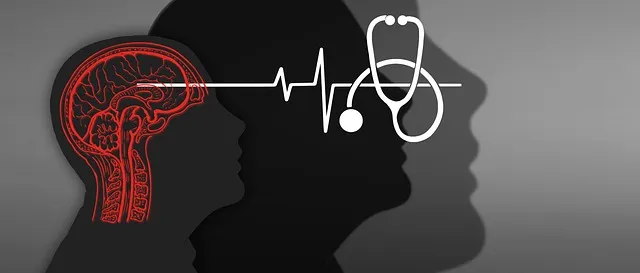Kaiser Permanente's training programs in Boulder focus on Crisis Intervention Teams (CITs) that provide swift, empathetic support during mental health crises. These multidisciplinary teams undergo extensive preparation, integrating cultural sensitivity and self-care routines for personalized interventions. Stress management workshops, evidence-based practices, and the Mental Wellness Podcast Series enhance their resilience and effectiveness in handling diverse crisis scenarios. A robust CIT program equips professionals with coping skills, cultural awareness, and mood management tools to save lives in Boulder's diverse community.
In today’s healthcare landscape, effective crisis intervention teams (CITs) play a pivotal role in managing and mitigating high-stakes situations. The article delves into the crucial topic of CIT training programs, specifically exploring Kaiser Permanente’s renowned initiatives in Boulder. We’ll uncover how these programs equip medical professionals with the skills to navigate crises, improve patient outcomes, and foster resilient healthcare environments. By examining key components of successful training, we aim to illuminate best practices for organizations aiming to enhance their CIT capabilities.
- Understanding Crisis Intervention Teams: Their Role and Impact in Healthcare
- Kaiser Permanente Training Programs Boulder: An In-Depth Look at Effective Crisis Management
- Essential Components of a Successful Crisis Intervention Team Training Program
Understanding Crisis Intervention Teams: Their Role and Impact in Healthcare

Crisis Intervention Teams (CITs) play a pivotal role in healthcare settings, particularly in addressing acute mental health crises. These specialized teams, often comprised of trained professionals from various disciplines, are designed to provide rapid and effective support to individuals experiencing severe emotional distress or psychiatric emergencies. In the context of Kaiser Permanente training programs Boulder, CIT members undergo rigorous preparation to ensure they can handle such situations with empathy and proficiency.
The impact of these teams is profound. By integrating Cultural Sensitivity in Mental Healthcare Practice, CITs offer tailored interventions that consider the unique needs and backgrounds of individuals from diverse cultural and ethnic groups. Moreover, these programs emphasize Self-Care Routine Development for Better Mental Health, equipping team members with tools to manage their own well-being, which is essential for providing sustained support. Stress Management Workshops Organization within these training programs further enhances the team’s resilience, enabling them to effectively respond to crises while maintaining optimal mental health.
Kaiser Permanente Training Programs Boulder: An In-Depth Look at Effective Crisis Management

Kaiser Permanente training programs Boulder are renowned for their comprehensive approach to crisis intervention, focusing on both professional development and personal growth. These programs go beyond traditional first-response training by integrating evidence-based strategies for stress management workshops within the organization. Participants learn valuable techniques to enhance mental wellness through interactive sessions that foster inner strength development.
The Boulder location specifically caters to the unique demands of a fast-paced, high-stress environment, ensuring professionals are equipped to handle various crisis scenarios effectively. Their Mental Wellness Podcast Series Production further complements the training by providing ongoing resources and insights into emerging trends in crisis management. This holistic approach not only prepares individuals for immediate intervention but also fosters a culture of resilience within the organization.
Essential Components of a Successful Crisis Intervention Team Training Program

A successful Crisis Intervention Team (CIT) training program must be multifaceted to equip participants with the skills and knowledge needed to handle crises effectively. First and foremost, these programs should prioritize Coping Skills Development. This involves teaching strategies to help individuals manage stress, anxiety, and intense emotions during a crisis. Techniques such as deep breathing exercises, grounding methods, and cognitive reframing can be life-saving when integrated into the CIT’s toolkit.
Additionally, Cultural Sensitivity in Mental Healthcare Practice is an indispensable component of comprehensive CIT training. Recognizing and respecting diverse cultural backgrounds, beliefs, and communication styles allows interventionists to build rapport with individuals from various communities, ensuring more effective support. This is especially relevant in areas like Boulder, Colorado, known for its diverse population, where Kaiser Permanente training programs are designed to foster culturally competent mental healthcare practices. Incorporating modules on mood management further enhances the program’s effectiveness by providing tools for recognizing and stabilizing emotional states during a crisis.
Crisis intervention team (CIT) training is a vital component in healthcare, and programs like Kaiser Permanente’s in Boulder set a high standard. By equipping professionals with the necessary skills and knowledge, these initiatives enhance the effectiveness of CITs, ultimately leading to improved patient outcomes and better crisis management. Integrating evidence-based practices and continuous evaluation ensures that teams are well-prepared to handle diverse and complex situations. With dedicated training programs like Kaiser Permanente Boulder’s, we can foster more resilient and competent crisis intervention teams across healthcare settings.






